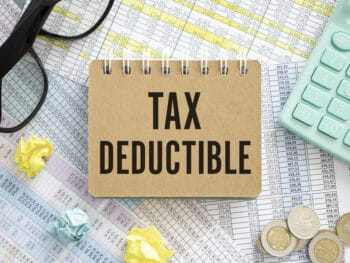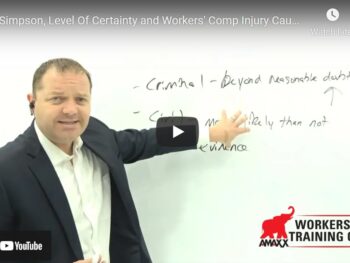There is a decades old ongoing discussion in work comp: is it the employer or employee who benefits or loses? The answer: both.
Neither Employer of Employee Are “Winners” in Work Comp
Neither the employer (who, ultimately, pays for everything) nor the employee (who has substantial net wage loss in nearly every claim) can be said to “win”, no matter what the outcome. “Winning”, to most people, means emerging undamaged, but the net losses in comp sometimes remain unknown to the parties until years later.
The most perfidious feature of work comp laws is the “substantial evidence” rule, which permits a comp board ruling to be unreviewable on questions of fact and medical opinion if it is supported by “substantial evidence”, which, in fact, is defined as “a scintilla of evidence”, which is hardly substantial at all.
So what? Well, it means that a typical comp system can make inconsistent rulings on a large group of claims, but each will be based on “substantial evidence” even though the rulings in bulk are contradictory. Comp systems have noticed this since the beginning, and so have the lowliest ALJs, who quickly realize that they are shielded from the review, except on questions of law, not fact. So, no matter who might win a particular claim, all can become the next victim of “substantial evidence”.
Click Link to Access Free PDF Download
“How To Avoid, Manage, And Win Workers’ Comp Claim Litigation”
Case Law Decisions Lead to Predictable Outcomes Most of the Time
But “a scintilla of evidence” is not a rule which demands the best of any system. It leads to decisions which erode into predictable outcomes most of the time, warranted or not, punctuated by irrational outcomes for no apparent reasons. One NY comp case, in the 1980s, was so inexplicable that it made a list of outrageous decisions which was published in the Readers’ Digest.
The comp claim involved a high school teacher who was so “stressed” by work that he shot and killed the principal. And then went on to win a max rate “stress claim”. This was upheld by the highest court in NY based on “substantial evidence”. The principal’s widow, in turn, had no problem winning a death claim, also based on – “substantial evidence”.
Therefore, neither party got the “short end” since both “won”.
If the result of a claim is only measured by who got money or who did not, the real “winners” and “losers” can never be identified. In the above high school case, what was the true effect on workplace morale? Was it ever considered? What was the successor principal faced with in terms of maintaining discipline and integrity in the school system?
And what did the attorneys representing workers do with that decision? For years it was routinely cited as authority for “all doubts are resolved in the worker’s favor”, although what doubt was in that claim is difficult to imagine.
The teacher later gave an interview to a newspaper, after his win in the highest court, complaining of the “stress” the litigation had subjected him to.
So who wins every comp claim? Everyone but the employer and employee.
Author: Attorney Theodore Ronca is a practicing lawyer from Aquebogue, NY. He is a frequent writer and speaker and has represented employers in the areas of workers’ compensation, Social Security disability, employee disability plans, and subrogation for over 30 years. Attorney Ronca can be reached at 631-722-2100. medsearch7@optonline.net
Editor Michael B. Stack, CPA, Director of Operations, Amaxx Risk Solutions, Inc. is an expert in employer communication systems and part of the Amaxx team helping companies reduce their workers compensation costs by 20% to 50%. He is a writer, speaker, and website publisher. www.reduceyourworkerscomp.com. Contact: mstack@reduceyourworkerscomp.com.
©2013 Amaxx Risk Solutions, Inc. All rights reserved under International Copyright Law.






















